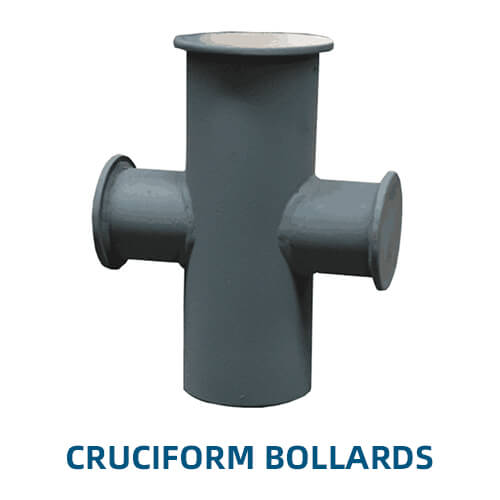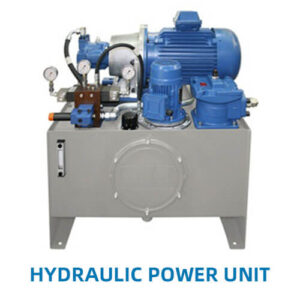Key Features of Cruciform Bollards:
- Design and Construction:
- Shape: Characterized by a cross-shaped or cruciform structure, which includes four arms or projections extending from a central column. This design provides multiple attachment points for mooring lines.
- Material: Typically made from robust materials such as cast iron, steel, or stainless steel. These materials are chosen for their strength, durability, and resistance to marine conditions.
- Base: Usually mounted on a solid base or foundation, which is securely fixed to the dock or pier. The base is designed to handle significant loads and stresses.
- Types:
- Fixed Cruciform Bollards: Permanently mounted to the dock or pier, providing a stable and immovable point for securing lines.
- Rotating Cruciform Bollards: Equipped with a rotating mechanism that allows the bollard to turn, facilitating easier handling and adjustment of mooring lines.
- Applications:
- Dock and Pier Mooring: Used on docks and piers to secure vessels during berthing and mooring. The multiple arms allow for the use of several mooring lines or ropes, improving load distribution and stability.
- Harbors and Ports: Installed in busy harbors and ports where multiple lines may be required for larger vessels or where high loads are expected.
- Marine and Offshore Platforms: Employed on floating platforms, oil rigs, and other offshore installations to provide multiple mooring points and handle heavy loads.
- Performance and Benefits:
- Load Distribution: The cruciform design helps distribute the mooring loads evenly across the bollard, reducing stress on individual lines and the bollard itself.
- Versatility: Multiple attachment points allow for flexible mooring arrangements, accommodating different line configurations and vessel sizes.
- Durability: Built to withstand harsh marine conditions, including exposure to saltwater, UV rays, and physical abrasion.
- Maintenance and Care:
- Inspection: Regularly inspect cruciform bollards for signs of wear, corrosion, or structural damage. Check the mounting and connection points for integrity.
- Cleaning: Clean the bollards to remove marine growth, debris, and contaminants that could affect their performance or appearance. Use appropriate cleaning agents to avoid damage to the material.
- Repairs: Address any damage or issues promptly to ensure the bollards remain functional and safe. This may involve repairing or replacing damaged components.
- Safety Considerations:
- Load Capacity: Ensure the cruciform bollard is rated for the specific loads and types of mooring lines being used. Overloading can cause damage or failure.
- Proper Installation: Ensure that the bollard is securely mounted and aligned to provide effective guidance and support for mooring lines.
- Line Management: Use appropriate line sizes and types for the bollard to ensure proper fit and performance. Avoid overloading individual lines or points.
Advantages of Cruciform Bollards:
- Multiple Attachment Points: The cross-shaped design provides multiple points for securing lines, improving flexibility and load distribution.
- Load Distribution: Helps evenly distribute the mooring loads, reducing stress on individual lines and the bollard.
- Durability: Built to handle heavy loads and withstand harsh marine environments, making them suitable for high-load applications.
Considerations for Cruciform Bollards:
- Selection: Choose the appropriate size, material, and design based on the specific mooring requirements and the type of vessel.
- Maintenance: Regularly inspect and maintain the bollards to ensure their continued functionality and safety.
- Compliance: Follow industry standards and regulations for the design, installation, and maintenance of cruciform bollards to ensure safety and performance.
Cruciform bollards are essential for managing mooring lines in high-load and busy marine environments. Their design offers versatility and durability, making them a valuable choice for securing vessels and ensuring stable mooring operations.






